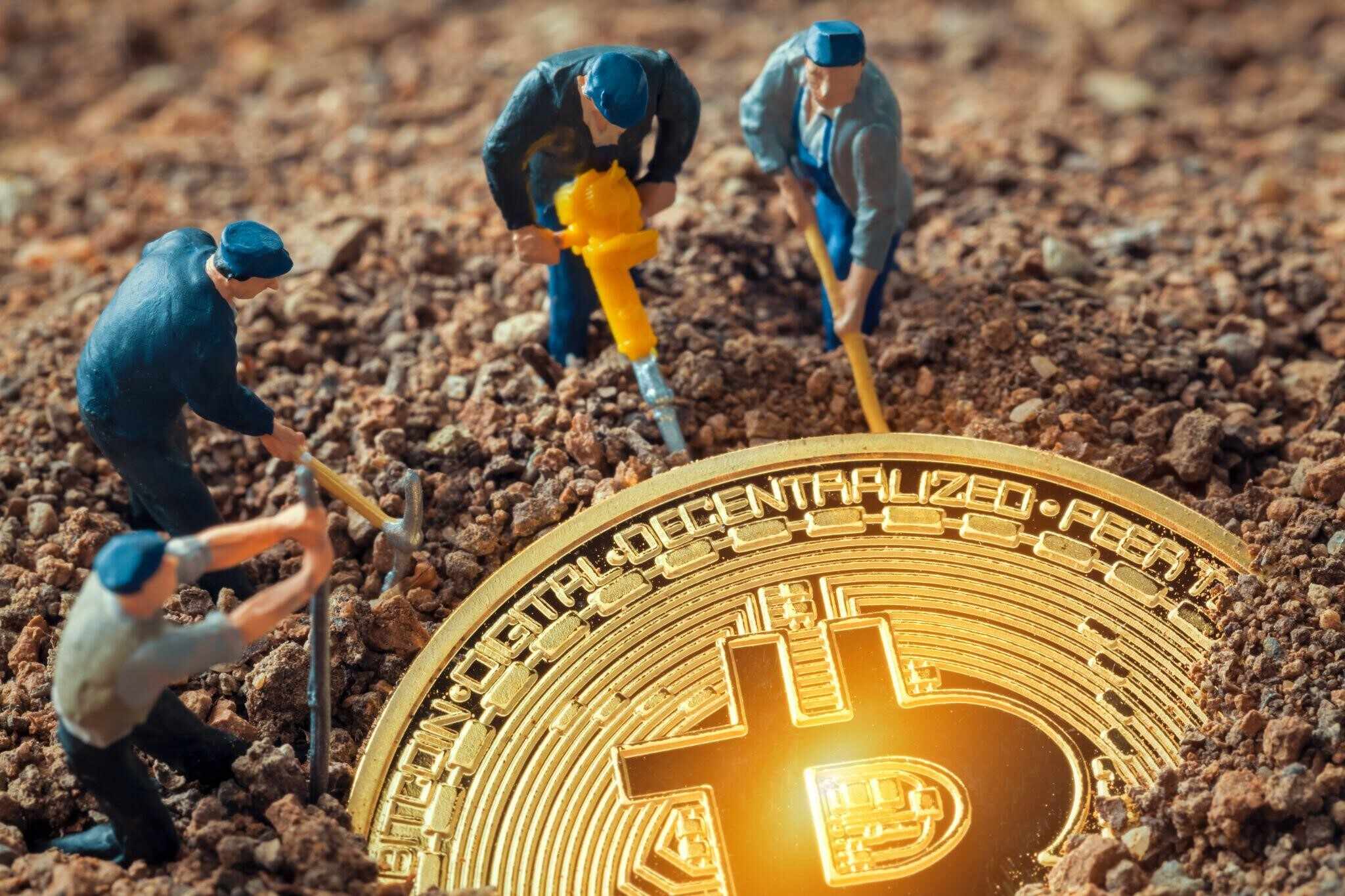Many people wonder if they can make money by mining Bitcoin. This digital currency rewards those who help verify transactions on the blockchain. Our article breaks down the essentials of Bitcoin mining and weighs its potential profits against the risks involved.
Discover if this venture is right for you!
Key Takeaways
- Bitcoin mining is solving math problems to help keep the network safe and create new bitcoins as rewards.
- The money you can make from mining depends on electricity costs, hardware prices, and how much Bitcoin’s value changes.
- Some countries say yes to mining, while others say no because it uses a lot of power or they just don’t allow it.
- There are many things to think about before starting to mine, like if you have enough money for equipment and if you’re ready for the ups and downs of Bitcoin prices.
- Mining needs lots of energy and good computers which can cost a lot. It’s important to know this so you can decide if mining is right for you.
What is Bitcoin Mining?
Bitcoin mining is the process of validating and verifying transactions on the Bitcoin network using computer hardware. It plays a crucial role in maintaining the security and integrity of the cryptocurrency system by adding new blocks to the blockchain.
The legality of mining varies from country to country, with some nations imposing strict regulations while others embrace it as a legitimate form of digital currency production.
How it works
To mine Bitcoin, people use powerful computers to solve complex math problems. This process checks and records everyone’s cryptocurrency transactions in a public list called the blockchain.
Whenever a computer solves these problems, it finds a new block. The miner that finds the block gets some Bitcoin as a reward.
Mining keeps the Bitcoin network safe and fair. By checking transactions, miners stop people from spending fake bitcoins or using the same bitcoin twice. It’s like being part of a team where everyone makes sure rules are followed and helps keep track of what’s going on with everybody’s digital money.
Purpose of mining
Bitcoin mining serves a crucial purpose in the cryptocurrency world, as it involves verifying and adding transactions to the blockchain. Miners use powerful computers to solve complex mathematical problems, ensuring the security and integrity of the decentralized network.
By doing so, they are rewarded with newly created bitcoins and transaction fees for their efforts.
This process not only facilitates the creation of new bitcoins but also helps maintain transparency and trust within the digital currency system. Additionally, miners play a vital role in regulating the supply of bitcoins in circulation while contributing to the overall stability and functionality of blockchain technology.
Legality of mining
Bitcoin mining legality varies by country. Some nations have embraced it as a legitimate activity, while others have imposed restrictions or outright bans due to concerns about energy consumption and regulatory oversight.
Factors such as government regulations, electricity costs, and environmental policies can impact the legal landscape for cryptocurrency mining. Investors need to research and understand the legal framework in their jurisdiction before engaging in Bitcoin mining to avoid potential legal issues or compliance challenges.
In some countries, cryptocurrency mining operations may require specific licenses or permits to operate within the confines of existing laws. Additionally, ensuring compliance with tax regulations and cybersecurity laws is essential for maintaining a legally sound operation.
Is Bitcoin Mining Profitable?
Bitcoin mining can be profitable, but it depends on various factors such as electricity costs, hardware expenses, and market volatility. Joining a mining pool can increase the chances of earning consistent returns from mining activities.
Factors affecting profitability
Bitcoin mining profitability is influenced by several key factors that investors should consider before entering the market. Here are the main aspects to take into account:
- Market Volatility: Fluctuations in asset prices directly impact mining revenue.
- Upfront Costs: Hardware models and their efficiency play a crucial role in determining profitability.
- Revenue Volatility: The dynamic nature of virtual currency prices affects potential earnings.
- Investment Risks: The capital-intensive nature of mining poses financial risks to investors.
- Mining Pool Participation: Joining mining pools can impact individual profitability based on pool fees and reward distribution.
Pros and cons
Evaluating the factors that affect profitability leads us naturally to weigh the pros and cons of engaging in Bitcoin mining. This assessment is critical for investors considering whether to allocate resources to this venture.
| Pros of Bitcoin Mining | Cons of Bitcoin Mining |
| Potential for high returns on investment due to Bitcoin’s price appreciation | Significant initial capital required for purchasing mining equipment |
| Mining rewards offer a steady influx of Bitcoin, assuming profitable operation | Operational costs are high, including electricity and maintenance expenses |
| Contributes to the security and integrity of the Bitcoin network | Susceptibility to market volatility can rapidly change the profitability outlook |
| Diversification opportunity within a broader investment portfolio | Increasing difficulty in mining leads to lower rewards over time |
| Possibility to join mining pools to reduce individual investment and increase the chance of earning rewards | Regulatory changes in different jurisdictions can pose risks to mining operations |
Moving on from the potential gains and pitfalls, it’s vital to delve into the inherent risks and challenges associated with Bitcoin mining.
Necessary investments
Considering the pros and cons of Bitcoin mining, it’s clear that necessary investments are crucial for success in this venture. High upfront costs for specialized hardware models are a significant consideration.
The industry is capital-intensive, requiring substantial investment in tools and equipment to compete effectively. At the same time, investors should carefully evaluate asset price fluctuations and market volatility to manage risks effectively.
It’s important to understand that digital currency mining demands strategic asset management due to its competitive nature. Evaluating risk factors and potential profitability while navigating through the high initial investment is essential for any investor looking into Bitcoin mining as a profitable venture.
Risks and Challenges of Bitcoin Mining
Risks and Challenges of Bitcoin Mining include high energy consumption, costly hardware investments, and unpredictable market volatility. Interested in learning more about whether Bitcoin mining is a profitable venture or a risky business? Keep reading to explore the factors affecting profitability and the potential risks involved.
Energy consumption
Bitcoin mining requires a significant amount of energy. The process involves solving complex mathematical problems, which demands high computational power and, consequently, massive electricity consumption.
As a result, miners need to consider the cost of energy in their profitability calculations.
The escalating energy consumption from Bitcoin mining has raised concerns about its environmental impact and sustainability. Miners are continually seeking more energy-efficient solutions to mitigate these challenges while aiming for profitability in this competitive industry.
Hardware costs
Bitcoin mining requires significant investment in hardware, including specialized computers called ASIC miners and cooling systems. The initial cost of purchasing these machines can be quite steep, leading to a substantial upfront investment.
Moreover, the ongoing expenses related to electricity consumption and maintenance add to the overall hardware costs. It’s vital for potential miners to carefully assess their budget and consider the long-term implications of these investments before delving into Bitcoin mining.
Market volatility
Navigating the world of Bitcoin mining comes with various considerations, including the impact of market volatility. The fluctuating prices of Bitcoin can significantly affect your profitability as a miner.
During periods of high volatility, the potential for significant gains may be present, but it also introduces a higher level of risk. Understanding how market volatility can influence your investment is crucial when assessing the overall profitability and sustainability of your mining operations.
One way to mitigate the effects of market volatility is by carefully monitoring price trends and implementing strategic decision-making based on these observations. Additionally, diversifying your portfolio and staying informed about market news and developments can help you adapt to changing conditions and make informed choices regarding your Bitcoin mining venture’s financial outlook.
Conclusion
In conclusion, Bitcoin mining can be profitable under the right circumstances. However, it comes with substantial risks and challenges. For those contemplating this venture, carefully evaluating the factors affecting profitability is crucial.
Understanding the market volatility and necessary investments is essential before embarking on this journey into the world of cryptocurrency mining.

























